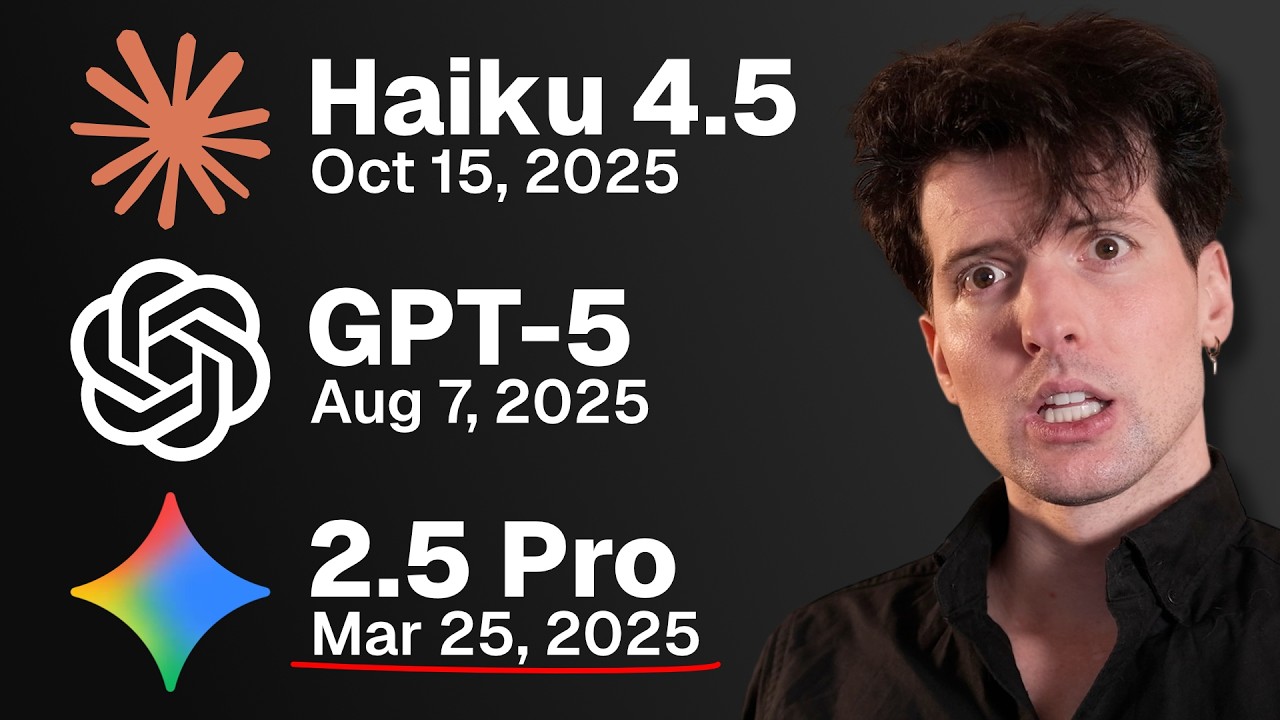The video explores the ongoing delays and mystery surrounding Google’s highly anticipated Gemini 3 AI model, highlighting internal challenges, competitive pressures, and organizational complexities that have stalled its public release despite signs of its near readiness. It emphasizes Google’s cautious approach to ensure Gemini 3 outperforms rivals, leaving the AI community eagerly awaiting official news with no clear timeline.
The video discusses the much-anticipated release of Google’s Gemini 3 model, which has been shrouded in mystery and delays. Despite the excitement following the Gemini 2.5 Pro preview earlier in the year, Gemini 3 has yet to materialize, even as numerous other AI models like Llama 4, Claude 4, and GPT-5 have launched. The creator expresses frustration over the lack of clear information, noting that even insiders at Google seem uncertain about the model’s status. Frequent leaks and rumors circulate, but many turn out to be fake or questionable, and Google has not followed its usual pattern of openly testing new models publicly.
A significant point raised is Google’s aggressive deprecation schedule for older Gemini API snapshots, with many models being phased out in November and December. This suggests that Google might have planned to release Gemini 3 around this time but has delayed it, possibly due to competitive pressures from other recent model releases like Sonnet 4.5. The video speculates that Google is likely refining Gemini 3 further to ensure it remains state-of-the-art, as releasing a subpar model could damage Google’s reputation and stock value. The delay might also be influenced by internal challenges and the need to outperform open-source models.
The video also delves into Google’s unique position in the AI ecosystem, highlighting its vertical integration across applications, models, inference services, and custom hardware. Unlike many competitors, Google develops its own chips optimized for AI inference, which contributes to the performance of its models. However, internal fragmentation among different Google teams—such as DeepMind, AI Studio, and Vertex AI—creates coordination challenges that may be slowing down development and deployment. This organizational complexity contrasts with other companies that have more streamlined operations.
There are some intriguing hints that Gemini 3 might already be accessible in limited ways. For example, a leaked screenshot showed Gemini 3 Pro preview available on Vertex AI in select regions, though this was later debunked by a Google product lead. Similarly, some users claimed to access Gemini 3 Pro via the Gemini CLI, but these accesses appear to have been quickly blocked. Despite these setbacks, evidence like updated JSON test files referencing “Gemini 3.0 Ultra” suggests the model is indeed in existence internally, though its public release remains uncertain.
In conclusion, the video portrays Gemini 3 as a highly anticipated but elusive model caught in a web of internal delays, competitive pressures, and organizational challenges at Google. While the model is likely ready or near-ready, Google seems cautious about releasing it prematurely. The creator hopes that by discussing these issues openly, it might help accelerate the release. For now, the AI community remains in suspense, eagerly awaiting official news on Gemini 3’s launch, with no clear timeline in sight.
